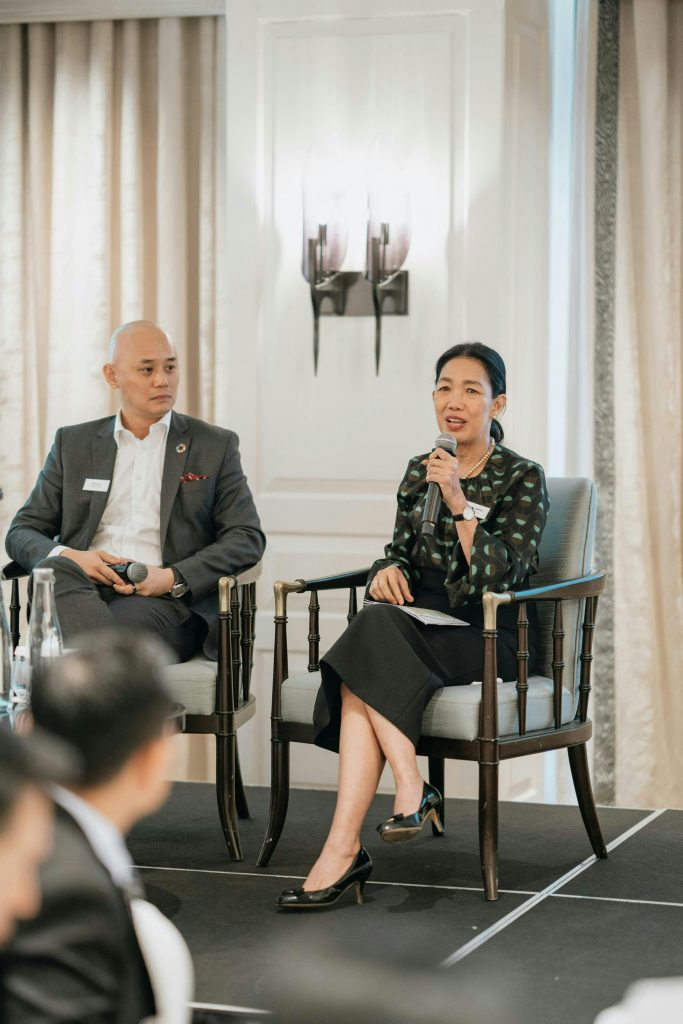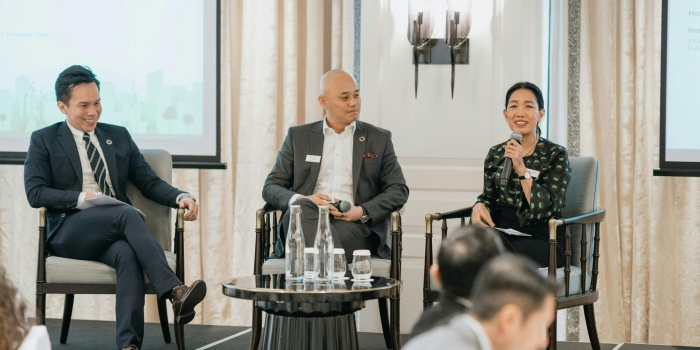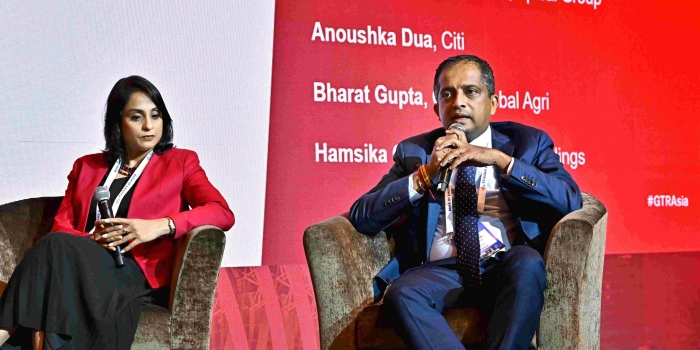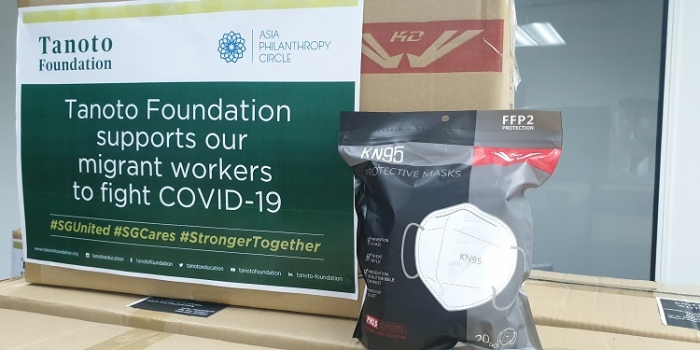With continuing moves towards sustainability among global leaders, consumers, and investors, how are private enterprises addressing the call to drive positive climate impacts in the context of their businesses? This was a key focus of a recent panel discussion held by Fullerton Fund Management in Singapore.
During the discussion, titled ‘Putting Asia’s Decarbonisation into Action: The Practitioners’ Perspectives’, Lucita Jasmin, Director for Sustainability & External Affairs, APRIL Group, shared insights based on RGE’s leadership position in both resource-based manufacturing sectors and in the implementation of wide-ranging sustainability commitments across its business groups.
Diving into the opportunities of investing in decarbonisation, she spoke about how sustainability initiatives by RGE and its businesses like APRIL have positively impacted climate, nature and people while driving the sustainable business growth of the group’s businesses.
“We believe that sustainability makes good business sense, and this is basically what drives our daily decision-making in our operational focus,” she said, highlighting the group’s various sustainability commitments including APRIL2030, Bracell’s “One to One” conservation commitment, and RGE’s pledge to continue to finance its ongoing expansion through Sustainability Linked Loans (SLL).

Ms. Jasmin speaks about how RGE and APRIL have positively impacted the environment, society and their bottom line through sustainable practices and decarbonization investment.
Asked about the need for businesses to balance profit and purpose, she said: “The notion of having to strike a balance suggests that profit and purpose are separate concepts. We believe that it is about the integration of the two. Profit and purpose are two sides of the same coin and one enables the other”.
“If we are a purpose-led company with strong ESG credentials, we see markets and financing open up, enhanced employee value propositions and new opportunities. It is a journey. It can be challenging but sustainability makes good business.”
The discussion was moderated by Mervin Teo, Vice President, Fullerton Fund Management. Ms. Jasmin was joined by Kelvin Fu, Managing Partner, Gunung Capital, who shared how listed companies can align climate interests with those of shareholders by leveraging appropriate sustainability initiatives to optimise costs while increasing revenue.
Investing in decarbonisation to benefit climate, nature and people
If businesses closely examine their portfolios, there are many opportunities where they can take steps to decarbonise their footprint, said Ms. Jasmin. These initiatives present both a strong commercial opportunity as well as the potential to create significant positive environmental impacts.
One example is RGE’s project to restore and conserve forest ecosystems in Riau, Indonesia through its Restorasi Ekosistem Riau (RER) project, she said. This has been supported by a USD100 million investment made by the group at COP21 in 2015. Since it was set up, there has been minimal fire incidents and low levels of illegal encroachment in the RER area.

The RER programme was established by APRIL Group to protect and restore approximately 150,000 hectares of peatland forest on the Kampar Peninsula.
Businesses can also positively impact climate by investing in people through community conservation partnerships. This includes building the capabilities of community partners, providing alternative livelihood opportunities to address root causes of deforestation and encroachment, and engaging communities to become stewards of conservation, she said. RGE is doing so by investing in the provision of health, education and support for women in local communities.
For businesses to effectively create change, having alignment with shareholders is key. Mr. Fu said this enabled Gunung Raja Paksi, of which he is a senior advisor, to give its management a mandate to pursue sustainable initiatives, guided by a strategic roadmap and clear key performance indicators to track progress and deliver tangible business outcomes.
Building Asia’s net zero future by integrating profit and purpose
With the rising importance of environmental, social and governance (ESG) targets and commitments, Asian businesses are heading in a direction where profit and purpose are integrated, said Ms. Jasmin. Businesses increasingly recognise the benefits of aligning purpose with practice, and profitability can continue to underwrite sustainability targets and commitments.
In conclusion, maintaining a balance between profitability and purpose would continue to be at the core of RGE’s operations, she said. “Profitability continues to underwrite our sustainability initiatives and sustainability is at the core of our business.








